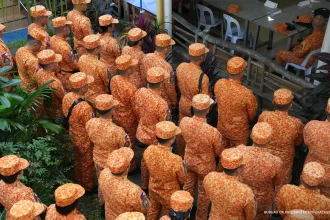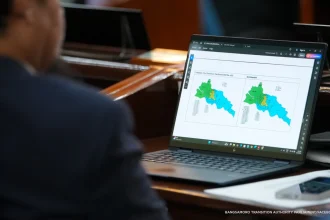
Metro Manila, Philippines — The country has a new law that would penalize crimes classified as agricultural economic sabotage.
President Ferdinand Marcos Jr. enacted the Anti-Agricultural Economic Sabotage law at Malacañan Palace on Thursday, Sept. 26. It defines crimes related to agricultural economic sabotage including smuggling, hoarding, profiteering, and cartel operations.
Such activities will be flagged as a possible economic sabotage case when the value of goods exceeds ₱10 million.
Malacañang said the law replaced the Anti-Agricultural Smuggling Act “with more comprehensive mechanisms to ensure stricter enforcement and better implementation.”
“We will enforce the law and ensure that swift and decisive action is taken against anyone who dares to sabotage our agricultural sector,” Marcos said in a speech after the signing ceremony.
Marcos: Let me be clear, this law does not just target the masterminds. It holds all accomplices accountable — financiers, brokers, employees, even transporters | @JeloMantaring pic.twitter.com/oECec8hBKd
— NewsWatch Plus PH (@newswatchplusph) September 26, 2024
Marcos was concurrent agriculture secretary for over a year and was marred by high prices of agricultural commodities, including onions.
In his State of the Nation Address in 2023, Marcos issued a warning against agricultural smugglers, hoarders, and price fixers.
“Hinahabol at ihahabla natin sila. Sadyang hindi tama ang kanilang gawain at hindi rin ito tugma sa ating magandang layunin,” the president said, saying what they do is cheating.
[Translation: We are chasing after them and will charge them. What they are doing is not right and is not in line with our good purpose.]
“Bilang na ang mga araw ng mga smuggler at hoarder na ‘yan,” he also said.
[Translation: Those smugglers and hoarders already have numbered days.]
The Enforcement Office of the Philippine Competition Commission charged importers and traders of onions for anticompetitive practices.
















